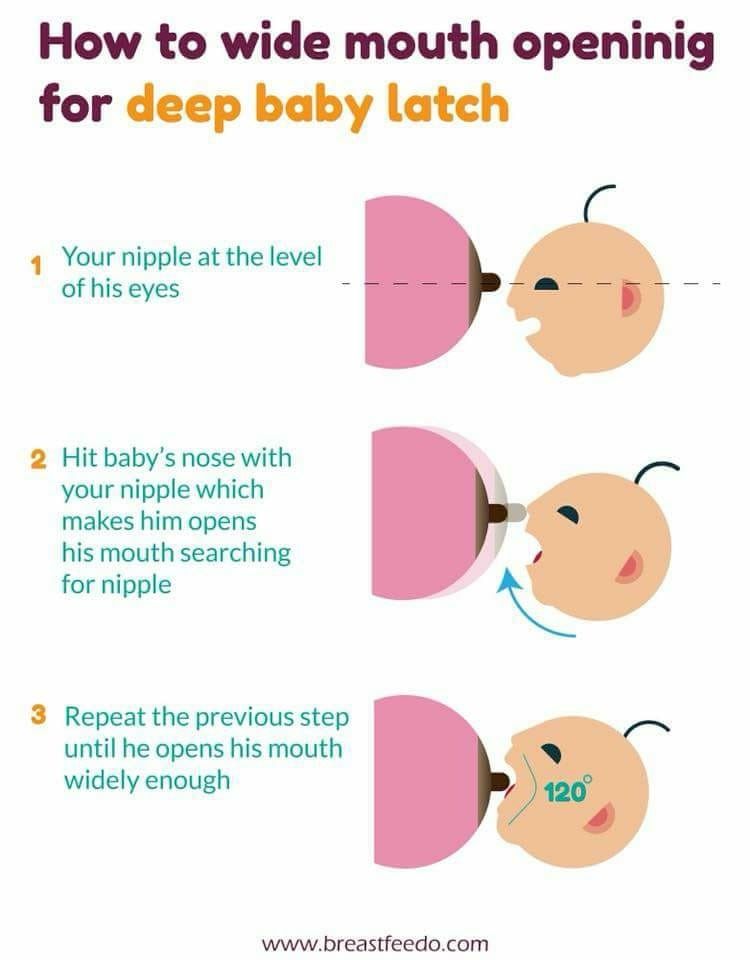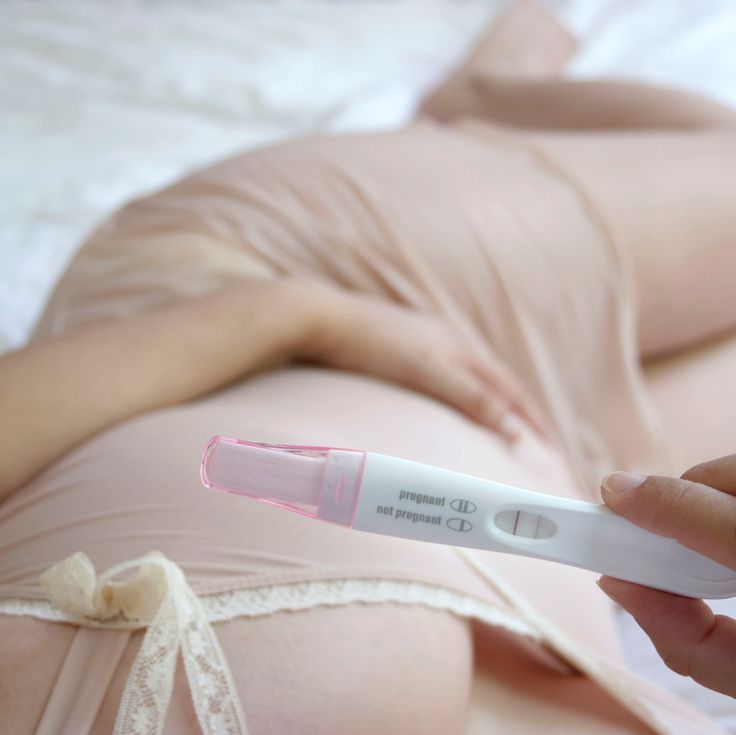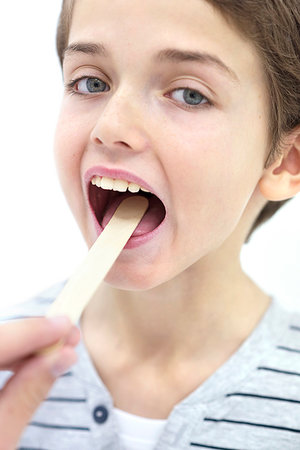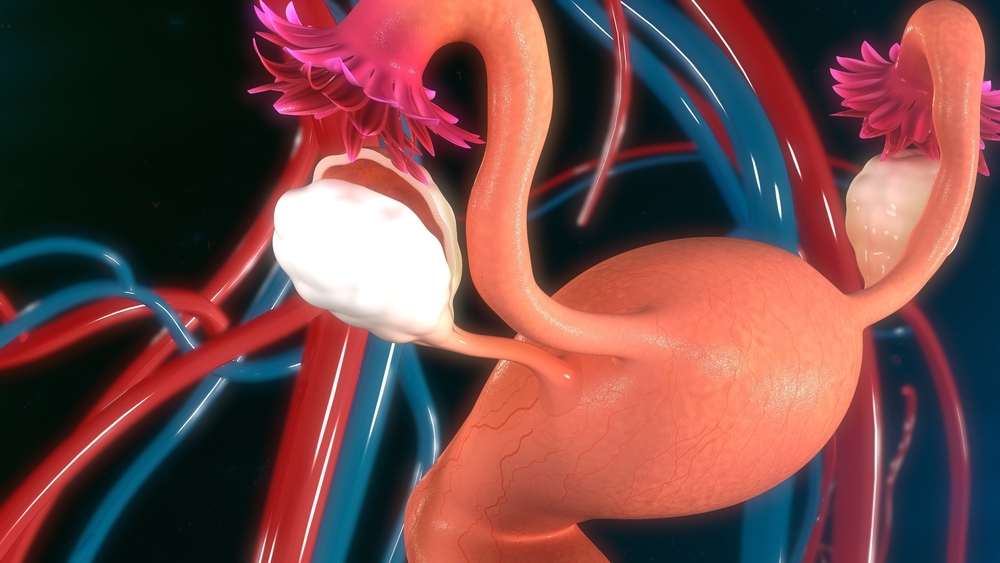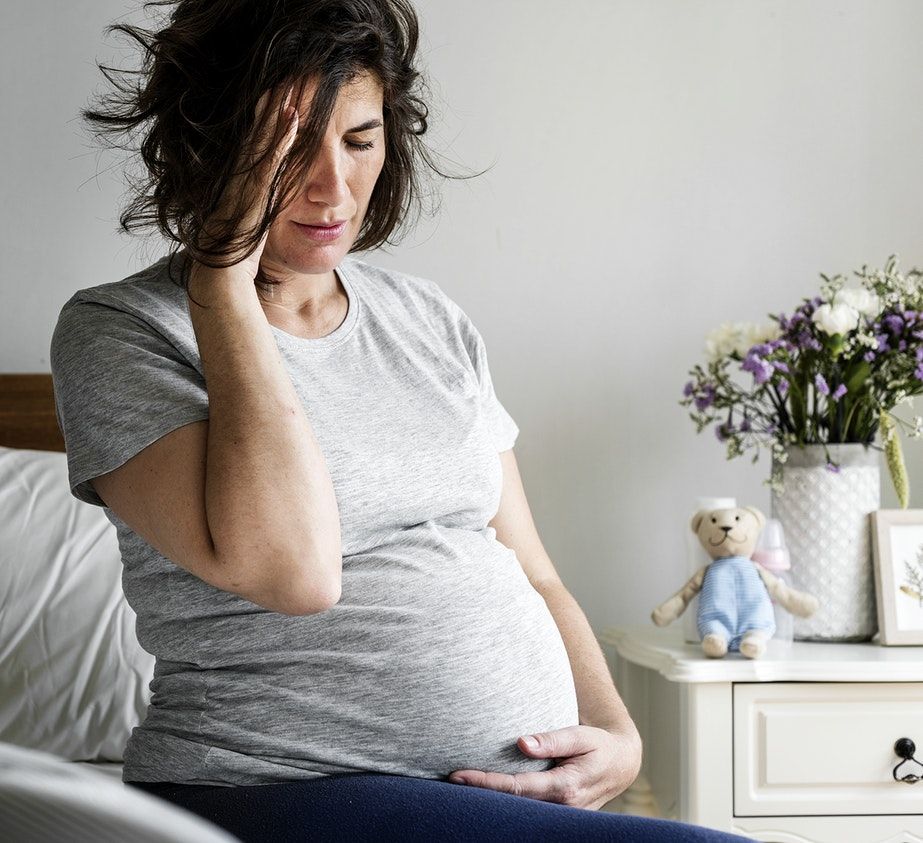What to do for chicken pox
Chickenpox (Varicella) Prevention and Treatment
- Prevention
- Treatments at Home
- Treatments Prescribed by Your Doctor
Prevention
The best way to prevent chickenpox is to get the chickenpox vaccine. Everyone—including children, adolescents, and adults—should get two doses of chickenpox vaccine if they have never had chickenpox or were never vaccinated.
Chickenpox vaccine is very safe and effective at preventing the disease. Most people who get the vaccine will not get chickenpox. If a vaccinated person does get chickenpox, the symptoms are usually milder with fewer or no blisters (they may have just red spots) and mild or no fever.
The chickenpox vaccine prevents almost all cases of severe illness. Since the varicella vaccination program began in the United States, there has been over 90% decrease in chickenpox cases, hospitalizations, and deaths.
For more information about chickenpox vaccine, see Vaccination.
Treatments at Home for People with Chickenpox
There are several things that you can do at home to help relieve chickenpox symptoms and prevent skin infections. Calamine lotion and a cool bath with added baking soda, uncooked oatmeal, or colloidal oatmeal may help relieve some of the itching. Try to keep fingernails trimmed short and minimize scratching to prevent the virus from spreading to others and to help prevent skin infections. If you do scratch a blister by accident, wash your hands with soap and water for at least 20 seconds.
Over-the-counter Medications
Do not use aspirin or aspirin-containing products to relieve fever from chickenpox. The use of aspirin in children with chickenpox has been associated with Reye’s syndrome, a severe disease that affects the liver and brain and can cause death. Instead, use non-aspirin medications, such as acetaminophen, to relieve fever from chickenpox. The American Academy of Pediatrics recommends avoiding treatment with ibuprofen if possible because it has been associated with life-threatening bacterial skin infections.
When to Call a Healthcare Provider
For people exposed to chickenpox or shingles, call a healthcare provider if the person:
- Has never had chickenpox and is not vaccinated with the chickenpox vaccine
- Is pregnant
- Has a lowered ability to fight germs and sickness (weakened immune system) caused by disease or medication; for example:
- A person with HIV/AIDS or cancer,
- A person who has had a transplant, or
- A person on chemotherapy, immunosuppressive medications, or long-term use of steroids.
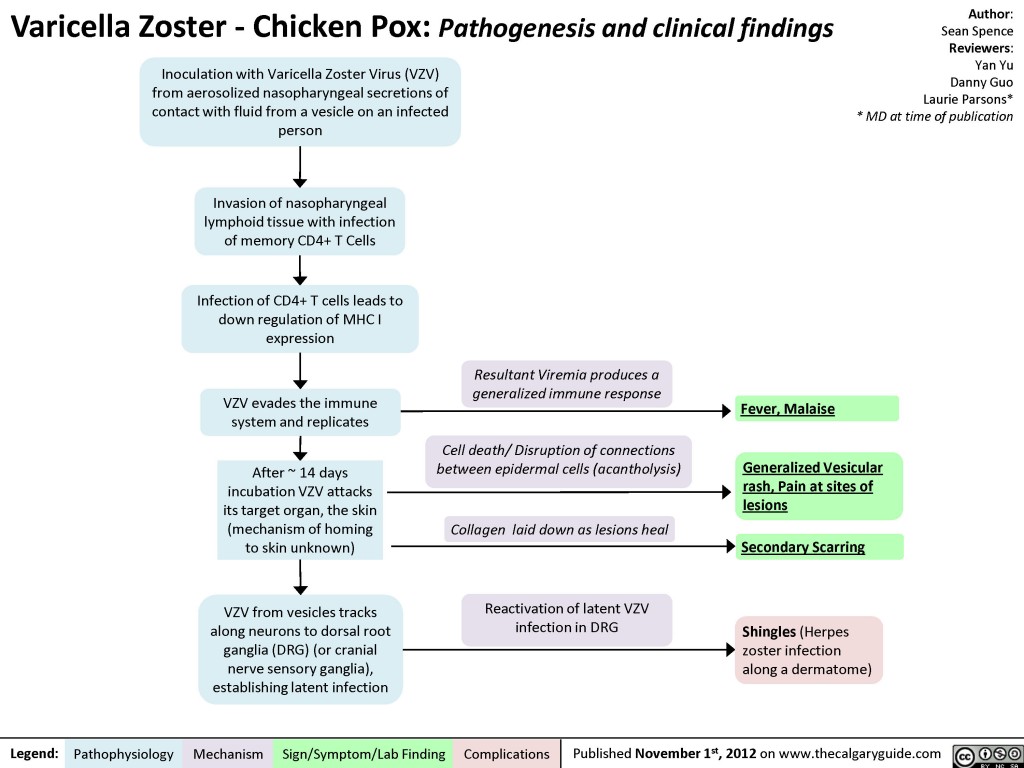
If you have symptoms, call your healthcare provider. Contacting a healthcare provider is especially important if the person:
- Is at risk of serious complications from chickenpox because he or she:
- Is less than 1 year old
- Is older than 12 years of age
- Has a weakened immune system
- Is pregnant
OR
- Develops any of the following symptoms:
- Fever that lasts longer than 4 days
- Fever that rises above 102°f (38.9°c)
- Any areas of the rash or any part of the body becomes very red, warm, or tender, or begins leaking pus (thick, discolored fluid), as these symptoms may indicate a bacterial infection
- Difficulty waking up or confused behavior
- Difficulty walking
- Stiff neck
- Frequent vomiting
- Difficulty breathing
- Severe cough
- Severe abdominal pain
- Rash with bleeding or bruising (hemorrhagic rash)
Treatments Prescribed by Your Healthcare Provider for People with Chickenpox
Your healthcare provider can advise you on treatment options. Antiviral medications are recommended for people with chickenpox that are more likely to develop serious illness, including:
Antiviral medications are recommended for people with chickenpox that are more likely to develop serious illness, including:
- Otherwise healthy people older than 12 years of age
- People with chronic skin or lung disease
- People receiving long-term salicylate therapy or steroid therapy
- Pregnant women
- People with a weakened immune system
There are antiviral medications licensed for treatment of chickenpox. The medication works best if it is given as early as possible, preferably within the first 24 hours after the rash starts. For more information, see Acyclovir Treatment.
Top of Page
Chickenpox - Diagnosis and treatment
Diagnosis
Doctors generally diagnose chickenpox based on the rash.
If there's any doubt about the diagnosis, chickenpox can be confirmed with lab tests, including blood tests or a culture of lesion samples.
Treatment
In otherwise healthy children, chickenpox typically needs no medical treatment.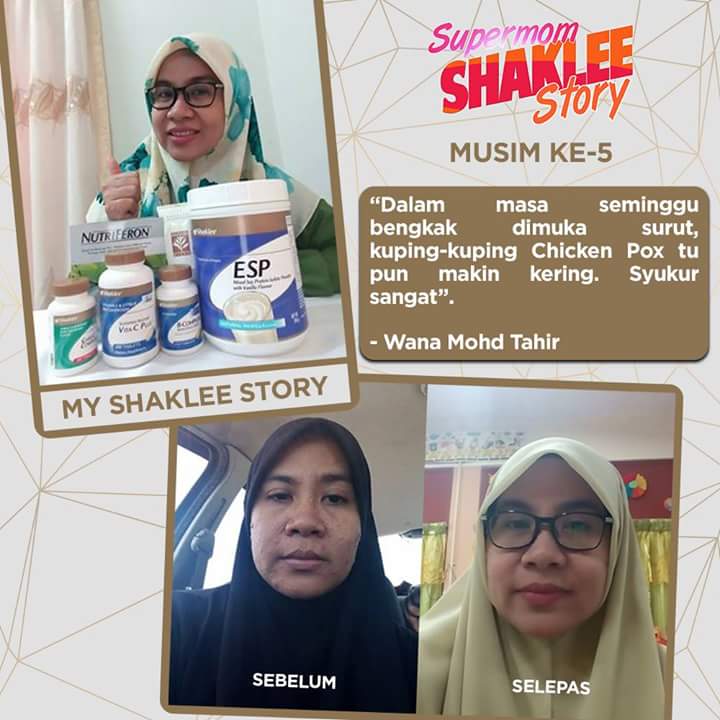 Your doctor may prescribe an antihistamine to relieve itching. But for the most part, the disease is allowed to run its course.
Your doctor may prescribe an antihistamine to relieve itching. But for the most part, the disease is allowed to run its course.
If you're at high risk of complications
For people who are at high risk of complications from chickenpox, doctors sometimes prescribe medications to shorten the length of the infection and to help reduce the risk of complications.
If you or your child are at high risk of complications, your doctor may suggest an antiviral drug such as acyclovir (Zovirax, Sitavig). This medication might lessen the severity of chickenpox when given within 24 hours after the rash first appears. Other antiviral drugs, such as valacyclovir (Valtrex) and famciclovir, also may lessen the severity of the disease, but might not be approved or appropriate for everyone.
In some instances, your doctor may recommend getting the chickenpox vaccine within three to five days after you've been exposed to the virus. This can prevent the disease or lessen its severity.
Treating complications
If complications develop, your doctor will determine the appropriate treatment. He or she may prescribe antibiotics for skin infections and pneumonia. Brain inflammation (encephalitis) is usually treated with antiviral drugs. You may need to be hospitalized.
He or she may prescribe antibiotics for skin infections and pneumonia. Brain inflammation (encephalitis) is usually treated with antiviral drugs. You may need to be hospitalized.
Request an Appointment at Mayo Clinic
Lifestyle and home remedies
To help ease the symptoms of an uncomplicated case of chickenpox, follow these self-care measures.
Avoid scratching
Scratching can cause scarring, slow healing and increase the risk that the sores will become infected. If your child can't stop scratching:
- Put gloves on his or her hands, especially at night
- Trim his or her fingernails
Relieve the itch and other symptoms
The chickenpox rash can be very itchy, and broken vesicles sometimes sting. These discomforts, along with fever, headache and fatigue, can make anyone miserable. For relief, try:
- A cool bath with added baking soda, aluminum acetate (Domeboro, others), uncooked oatmeal or colloidal oatmeal — a finely ground oatmeal that is made for soaking.
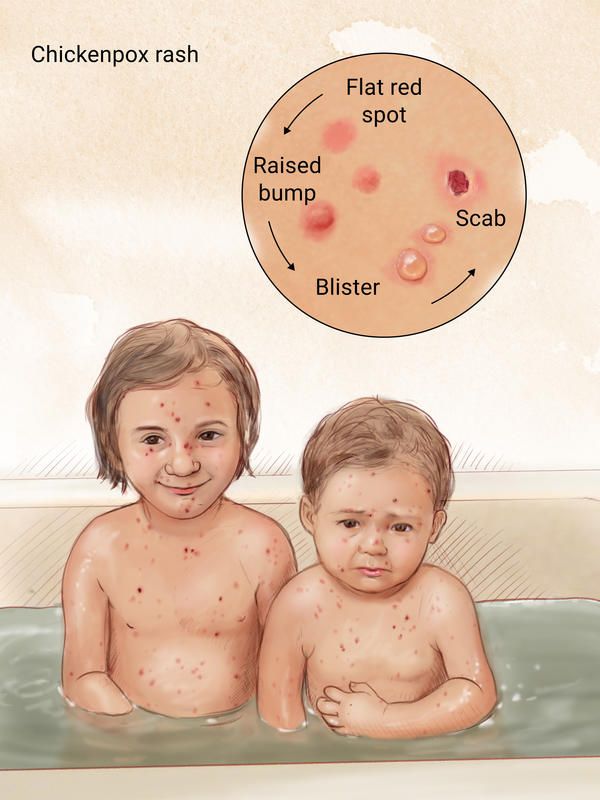
- Calamine lotion dabbed on the spots.
- A soft, bland diet if chickenpox sores develop in the mouth.
- Antihistamines such as diphenhydramine (Benadryl, others) for itching. Check with your doctor to make sure your child can safely take antihistamines.
- Acetaminophen (Tylenol, others) for a mild fever.
If fever lasts longer than four days and is higher than 102, call your doctor. And don't give aspirin to children and teenagers who have chickenpox because it can lead to a serious condition called Reye's syndrome.
Talk with your doctor before giving any type of nonsteroidal anti-inflammatory drug (NSAID) — such as ibuprofen (Advil, Motrin IB, others) — to someone who has chickenpox. Some studies suggest this type of medication may lead to skin infections or tissue damage.
Preparing for your appointment
Call your family doctor if you or your child has signs and symptoms common to chickenpox. Here's some information to help you get ready for your appointment.
Information to gather in advance
- Pre-appointment restrictions. Ask if there are any restrictions you or your child should follow, such as staying isolated so as not to spread infection, in the time leading up to the appointment.
- Symptom history. Write down any symptoms you or your child has had, and for how long.
- Recent exposure to possible sources of infection. Try to remember if you or your child has been exposed to anyone who might have had chickenpox in the last few weeks.
- Key medical information. Include any other health problems and the names of any medications you or your child is taking.
- Questions to ask your doctor. Write down your questions so that you can make the most of your time with your doctor.
Questions to ask your doctor about chickenpox include:
- What is the most likely cause of these signs and symptoms?
- Are there any other possible causes?
- What treatment do you recommend?
- How soon before symptoms improve?
- Are there home remedies or self-care steps that could help relieve symptoms?
- Am I or is my child contagious? For how long?
- How do we reduce the risk of infecting others?
Don't hesitate to ask any other questions.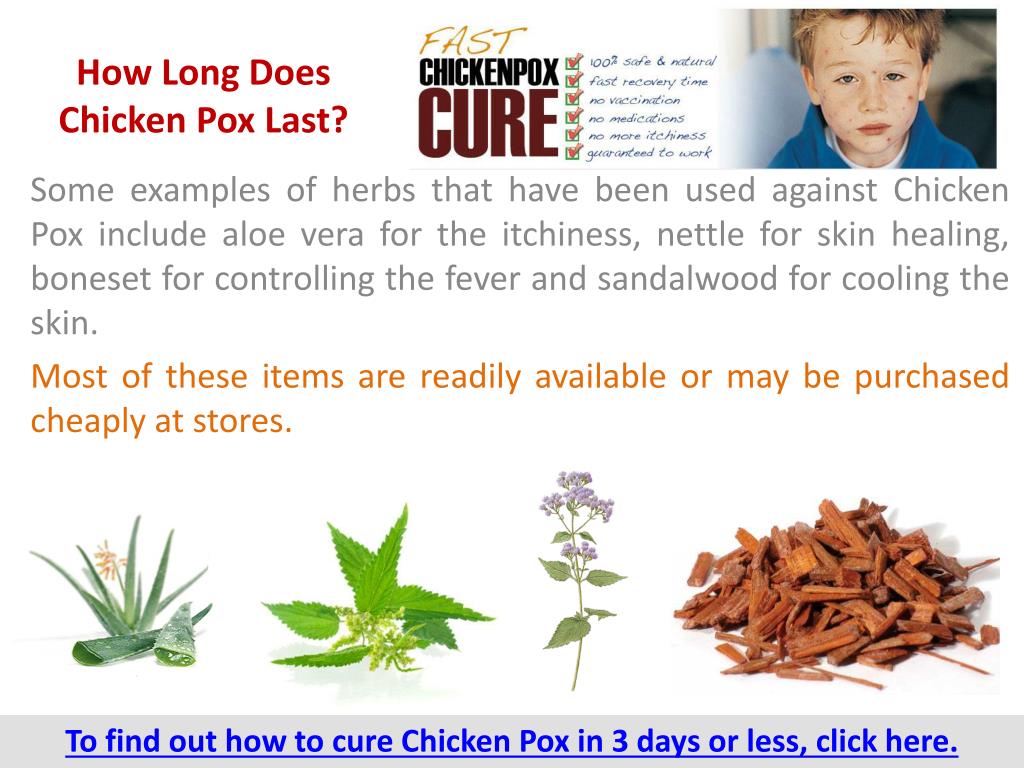
What to expect from your doctor
Your doctor may ask:
- What signs and symptoms have you noticed, and when did they first appear?
- Has anyone else you know had signs and symptoms common to chickenpox within the last few weeks?
- Have you had or has your child had a chickenpox vaccine? How many doses?
- Are you or is your child being treated or have you recently been treated for other medical conditions?
- What medications are you or your child currently taking, including prescription and over-the-counter drugs, vitamins and supplements?
- Is your child in school or child care?
- Are you pregnant or breastfeeding?
What you can do in the meantime
Rest as much as possible, and avoid contact with others. Chickenpox is highly contagious until skin lesions have fully crusted.
By Mayo Clinic Staff
Related
Products & Services
treatment, symptoms, diagnosis and causes
General practitioner (family doctor)
Gutorova
Natalia Konstantinovna
Experience 22 years
Doctor
Make an appointment
Chicken pox, or, as they say, varicella, is an acute viral disease that occurs mainly at a young age and affects the skin.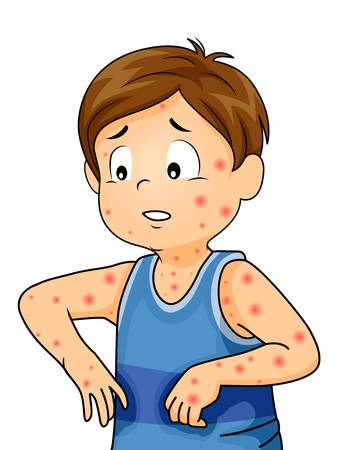 The causative agent belongs to a variety of herpesviruses and, after penetrating into the body, remains in it for life. So, after the disease passes, it is stored in nerve cells.
The causative agent belongs to a variety of herpesviruses and, after penetrating into the body, remains in it for life. So, after the disease passes, it is stored in nerve cells.
Causes
As a cause of chickenpox, one can only name the ingestion of a specific virus into the human body, which in the vast majority of cases is transmitted by airborne droplets and can also be a consequence of herpes zoster.
Who is most susceptible to illness?
According to studies, residents of large cities are more susceptible to the disease, in contrast to those living in rural areas.
Age also matters: chickenpox in children 2.5-6 years old, as well as younger schoolchildren, is most common. However, there are also cases of the disease among middle-aged men and women. The later a person becomes ill with it, the more pronounced the symptoms become.
Symptoms of disease
The onset of the first symptoms of chickenpox occurs after the incubation period. On average, it lasts from 7 to 21 days after the pathogen enters the human body.
On average, it lasts from 7 to 21 days after the pathogen enters the human body.
In most cases, the initial manifestation of the disease is a severe fever, which persists for 3-7 days and may be accompanied by body aches, headache, insomnia, disturbed sleep, and loss of appetite.
This is followed by the main symptom of chickenpox - a rash that appears on the trunk and head (up to its scalp) and spreads to the limbs. Rashes can be found in the most unexpected areas, for example, in the vaginal area, on the mucous membrane of the mouth and the cornea of the eyes.
The diameter of one such formation is 1-4 mm. At first they look like bubbles surrounded by reddened tissue, inside which a clear liquid accumulates. Then the bubbles become drier and form crusts instead.
At this stage, most people with chickenpox suffer from unbearable itching. However, it is strictly forbidden to comb the papules: otherwise, they will leave traces in the form of scars.
In some cases, patients among the symptoms of chickenpox may have an increase in lymph nodes - selectively or all at once.
Possible complications
As a rule, the disease goes away without serious consequences, especially if you do not comb the papules. However, in rare cases, complications from chickenpox can still occur.
Among them:
- bacterial infection caused by streptococcus;
- viral pneumonia, more common in babies of the first year of life and manifested in the form of high body temperature, excessive blanching of the skin, dry cough and severe shortness of breath even at rest;
- temporary disruption of the central nervous system;
- encephalitis;
- varicella meningitis.
To avoid such consequences, monitoring the development of the disease and treatment should be carried out under the supervision of a general practitioner, pediatrician or infectious disease specialist.
Diagnostic features
Diagnosis of chickenpox, as well as its treatment, is carried out by a pediatrician, therapist (if an adult is ill) or an infectious disease specialist.
The general clinical picture of the patient is taken as the basis. To clarify the diagnosis, blood sampling is possible (a general analysis is performed, as well as PCR or ELISA, which are taken twice - in the initial and final stages of the disease) and a microscopic examination of the contents of the formed vesicles on the skin.
Treatment
Treatment of chickenpox with its standard course occurs at home after consulting a doctor. It is aimed at improving the general well-being of the patient: to reduce elevated body temperature, drugs are used, the active ingredient of which is paracetamol.
In the vast majority of cases, patients suffer from unbearable itching of the skin. To alleviate the condition, special ointments and solutions based on zinc and potassium permanganate are prescribed, with the addition of tea tree oil. Antihistamines may be recommended. Often, a specialist prescribes ointments, the action of which is aimed at the destruction of a viral pathogen.
Antihistamines may be recommended. Often, a specialist prescribes ointments, the action of which is aimed at the destruction of a viral pathogen.
In more serious cases (especially in the presence of concomitant shingles), the doctor prescribes analgesics. With extremely reduced immunity, immunoglobulins are administered to the patient, and with intense intoxication of the body, detoxification solutions.
When should I make an appointment?
Having found the first symptoms of chickenpox in children or adults, you should isolate the sick person as soon as possible and call a doctor at home. With suspicion of this ailment, it is categorically not recommended to arrive at the medical facility on your own. Such measures are dictated by the protection of other people who can easily become infected.
The sooner a specialist examines the patient, the better.
Self-treatment of chickenpox
The process of treatment must be supervised by a doctor. This is due to possible complications dictated by the individual characteristics of the body and illiterate selection of drugs.
This is due to possible complications dictated by the individual characteristics of the body and illiterate selection of drugs.
So, drugs based on ibuprofen for chickenpox are contraindicated, while paracetamol is allowed. These and other nuances are known only to specialists.
Answers to common questions
Is there a cure for chickenpox?
A preventive measure - not to contact with sick people - is not always effective. The fact is that infection can occur even before the first manifestations of the disease are detected in the patient. That is, he can communicate with friends without knowing that he is contagious.
It is possible to prevent the onset of the disease by vaccinating with special live vaccines, which are based on a weakened chickenpox virus.
Which specialist should I contact for treatment?
The treatment of chickenpox in children is carried out by a pediatrician or a pediatric infectious disease specialist. If an adult is ill, then a therapist or an adult infectious disease specialist should be called immediately after the first symptoms of chickenpox are detected.
If an adult is ill, then a therapist or an adult infectious disease specialist should be called immediately after the first symptoms of chickenpox are detected.
Is it possible to swim with chickenpox?
Due to the fact that the quality of tap water in most cities leaves much to be desired, with this disease, you should take a shower (not a bath) using boiled or filtered water. Otherwise, there is a risk of joining the viral form of a bacterial infection, which, in turn, can cause serious complications. It is better to wash with warm water. It is strictly forbidden to use a washcloth, rub the skin and steam it.
Didn't find the answer to your question?
Our experts are ready to advise you by phone:
+7 (495) 775-73-60
Chicken pox: what you need to know?
Therapy
Chicken pox is a disease of viral origin, the causative agent of which is a specific virus with the beautiful name varicella-zoster. This virus is easily transmitted from one person (sick) to another with particles of saliva and mucus, with exhaled air vapor, i.e. by airborne droplets. The disease is referred to as the so-called "children's" infections, but this does not mean that an adult cannot get chickenpox.
This virus is easily transmitted from one person (sick) to another with particles of saliva and mucus, with exhaled air vapor, i.e. by airborne droplets. The disease is referred to as the so-called "children's" infections, but this does not mean that an adult cannot get chickenpox.
Symptoms of chickenpox
The disease begins when viruses enter the bloodstream. Suddenly, symptoms strongly resembling the flu appear, the temperature rises sharply and a rash appears - first on the scalp and on the face, and then quickly spreading throughout the body, capturing not only the skin, but also the mucous membranes: "pimples" appear in the mouth, in nose, genitals.
The rash first appears as red spots, slightly raised above the surface of the skin. Very quickly, these spots turn into bubbles filled with a clear liquid. Some romantic doctors of the last century compared them to dew drops. Soon (most often after 2 days), the integrity of the vesicles is broken, a liquid containing billions of viruses flows out of them, and an ulcer forms in place of the vesicle.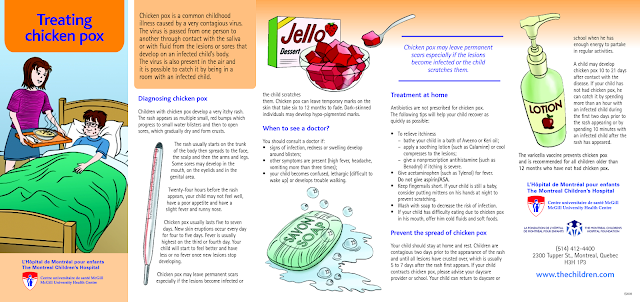 The sore is covered with a crust, which later (after 6-8 days) disappears. The rash is accompanied by itching, sometimes very severe.
The sore is covered with a crust, which later (after 6-8 days) disappears. The rash is accompanied by itching, sometimes very severe.
At the same time, it should be noted that throughout the course of the disease, more and more spots and vesicles are formed, the so-called "spills".
How to treat chickenpox?
The treatment of this disease today is not much different from past years and consists in alleviating its symptoms. It is worth noting that taking antibiotics is pointless, since they do not act on viruses. At a high temperature - above 38 - 38.5 degrees, as well as in cases where patients are prone to convulsions, doctors prescribe antipyretic drugs (paracetamol). Antihistamine (antiallergic) drugs, such as suprastin, tavegil, diphenhydramine, which reduce itching and somewhat neutralize the effect of the virus on the body, can also be prescribed. And of course, the treatment must be supplemented with the intake of multivitamin preparations, because vitamins are the few that can help children's immunity in the fight against infection.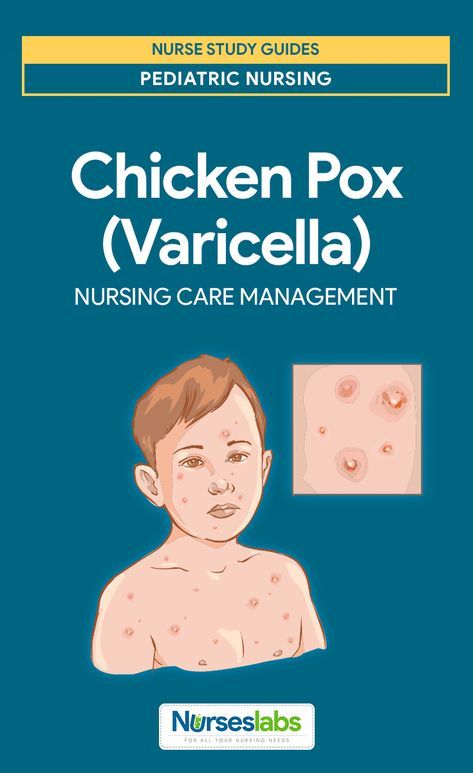
But the "main" medicine for chickenpox is brilliant green. She needs to process the bubbles 2 times a day. This is done in order to prevent the attachment of a bacterial infection and suppuration of skin rashes. If you don’t like brilliant green, any other antimicrobial drugs will do: methylene blue (“blue”), rivanol (yellow), fukortsin (red liquid). Rashes on the mucous membranes should be treated with a weak (pale pink) solution of potassium permanganate.
Chickenpox recommendation:
- Frequent change of bed and underwear.
- When sick, it is best to wear cotton clothing.
- Bed rest.
- Do not take a bath.
- Plentiful drink (tea, compotes, juices, rosehip decoction, etc.).
Smallpox affects most people only once in a lifetime . After an illness, we get antibodies, thanks to which we do not have to worry about it in the future. If there are no complications, the disease usually lasts from eight days to two weeks.![]()
